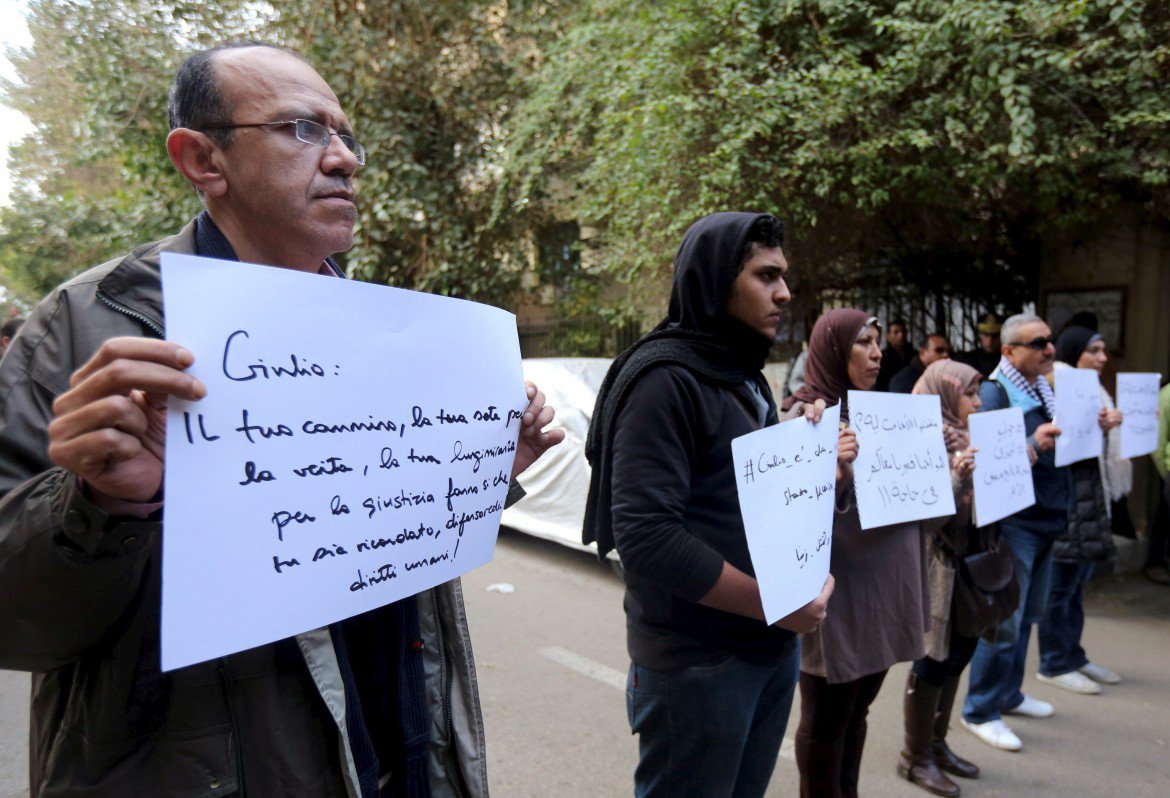Professor Anne Alexander of the University of Cambridge, where Giulio Regeni was studying for his PhD on Egyptian independent trade unions, is the author with Moustafa Bassiouny of the masterpiece on the Egyptian workers’ movements Bread, Freedom and Social Justice: Workers and revolution (Zed Books, 2014).
Alexander, along with Regeni’s supervisor, Maha Abdelrahman, wrote an open letter of protest to ask for an independent and impartial investigation into Regeni’s death. The letter has been published by The Guardian and il manifesto, and signed by thousands of people all over the world.
After having written the open letter of protest over the death of Giulio Regeni, how do you respond to the statement of the Egyptian authorities arguing that there are no enforced disappearance and political prisoners in Egypt?
I am frankly astonished by the response of the Ministry of Foreign Affairs to our letter. The Egyptian judiciary has become notorious for issuing death sentences against hundreds of defendants in a single sitting, with barely time for court officials to repeat the names of the accused, let alone hear any evidence against them. Peaceful protest has been criminalized, and the security forces licensed to use lethal force against demonstrations.
Police stations in many districts have become synonymous with torture centers. And torture is endemic.
Amnesty International documented the death from torture and neglect of three detainees in Mattariyya police station in a single week last February. According to data from Egyptian human rights organizations, in total seven detainees died at the station during 2015.
Detainees at Mattariyya are crammed 70 to a room designed for 20 people. They have to pay a bribe to a guard in order have a place to stand up. Many of the deaths are from suffocation, but others are as a result of beatings. Amnesty International spoke to the family of one detainee who died in May 2014 after horrific torture: his nails had been pulled out, he had been burned with cigarettes and his ribs were broken.
Last week policemen from Mattariyya turned up at the local hospital and beat up doctors who refused to falsify a medical report for them. Hospital staff walked out on strike for a week in protest, and the Egyptian Doctors’ Union is discussing taking national strike action over the issue of police violence and intimidation of medical workers. This shows that Mattariyya isn’t an isolated case, but symptomatic of a wider pattern of systematic abuse and culture of impunity for the perpetrators of violence within the state security apparatus.
Do you think the death and torture of Regeni is an unprecedented attack to academic freedoms in Egypt?
Sadly, Giulio’s murder needs to be set in a wider context of a systematic crackdown on academic freedoms and assaults on the human rights of students and academics.
Last year Islam Atito, a student at Ain Shams University, was killed by the security forces. His classmates say he was abducted from the examination hall and shot dead. Security forces have repeatedly stormed university campuses across Egypt using rubber bullets and live ammunition against student protests.
Do you think that in more general terms this is an attack to all critical foreigners who intend to go to Egypt for research or journalistic reasons?
The Egyptian authorities have, until now, generally deported foreigners who they deem too critical, or prevented them from entering the country. The exception to this was Peter Greste, of Al Jazeera, who was targeted because of his employer, rather than his personal views, and was jailed but later released after a major international campaign.
However, there have also been many reports in the media of a culture of fear and suspicion around foreigners being encouraged by the authorities.
Can you discuss your next plans?
Signatories to the open letter from Cambridge and elsewhere are planning to organize an international conference on forced disappearances, torture and extrajudicial killings in Egypt and the impact these have on academic freedoms and the human rights of journalists and researchers.
The Ministry of Foreign Affairs accuses us of making “unfounded assumptions” based on “hearsay” and “intentional distortions,” so we will invite academic experts and human rights organizations to present detailed evidence on these topics to the conference in order to share with the academic community and the wider public the evidence which prompted us to write the open letter.

